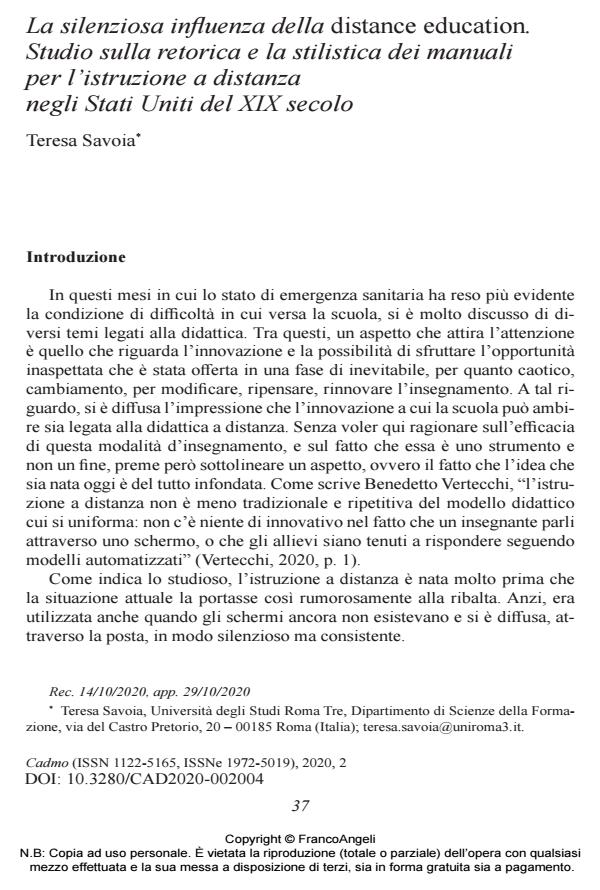Distance education in the United States of XIX century. Study on rhetoric and style in distance education handbooks
Journal title CADMO
Author/s Teresa Savoia
Publishing Year 2020 Issue 2020/2
Language Italian Pages 12 P. 37-48 File size 284 KB
DOI 10.3280/CAD2020-002004
DOI is like a bar code for intellectual property: to have more infomation
click here
Below, you can see the article first page
If you want to buy this article in PDF format, you can do it, following the instructions to buy download credits

FrancoAngeli is member of Publishers International Linking Association, Inc (PILA), a not-for-profit association which run the CrossRef service enabling links to and from online scholarly content.
Distance education in XIX century United States was an opportunity for those students who, by social and economic background, could not have obtained a certification. Several universities and private institutions created specific courses. They created an education industry which, through an ag¬gressive advertising campaign, recruited millions of people. Their market strategy was based on a very precise rhetoric that relied on elements deeply linked to the roots of Anglo-Saxon capitalism, building motivation by hinting to a social and economic realization that in the Protestant tradition is rich in ethical, if not religious, values. Likewise, the use of handbooks structured on the needs of students, extremely practical, linear and logical in organization of contents determined their success over time. Two of these manuals have been analyzed to detect their main characteristics.
Keywords: Distance education, rhetoric, education by mail, handbook for dis¬tance education, correspondence courses.
Teresa Savoia, La silenziosa influenza della distance education. Studio sulla retorica e la stilistica dei manuali per l’istruzione a distanza negli Stati Uniti del XIX secolo in "CADMO" 2/2020, pp 37-48, DOI: 10.3280/CAD2020-002004